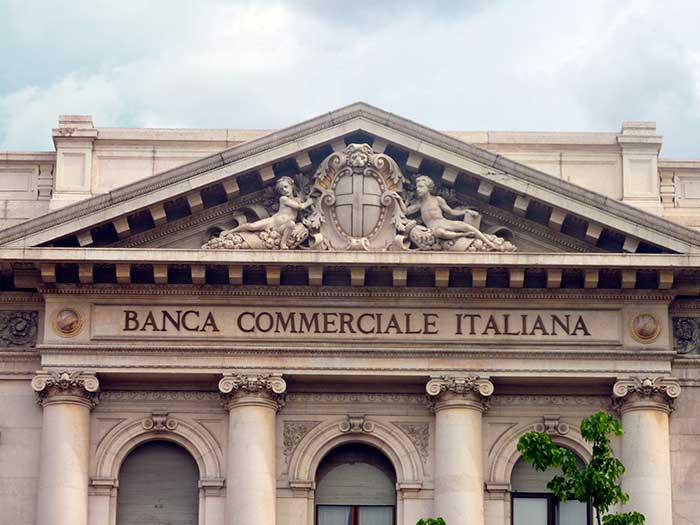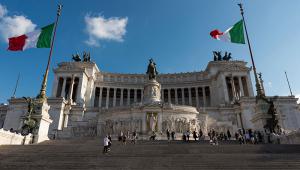bank_shutterstock.jpg

The IMF warned that Italy's banks have one of the highest rates of non-performing loans in the eurozone.
The fund said that the eurozone’s third largest economy will struggle to close the gap with other European Union member states even if ongoing reforms are fully implemented.
It slashed its growth forecasts for the country to less than 1% for this year, compared with an earlier estimate of 1.1%, and around 1% in 2017. The downgrade was due to Britain’s decision to leave the EU.
“This growth path would imply a return to pre-crisis (2007) output levels only by the mid-2020s and a widening of Italy’s income gap with the faster growing euro area average,” it said.
The economies of other eurozone members will be 20-25% larger than the levels seen in 2008 by 2020, it estimated.
“The recovery is likely to be prolonged and subject to risks,” the IMF continued, citing financial market volatility, the refugee crisis and slowdown in global trade.
“If downside risks were to materialise, regional and global spillovers would be significant, given Italy’s systemic weight,” it warned.
It noted that the Italian economy also faces a number of domestic challenges, including low productivity and investment, an unemployment rate of more than 11%, one of the highest rates of bad loans in the eurozone and public debt that has edged up close to 133% of GDP.
The IMF’s executive board “therefore urged the authorities to fully deepen the reforms to strengthen near-term growth, further build up buffers, enhance resilience and bolster economic performance over the medium term”.
Recommended reforms include institutional, administrative, fiscal and labour market changes.
Italy is currently negotiating with the European Commission to get permission to inject public support for its weakest national lenders to deal with its 18% rate of non-performing loans.
The country’s lenders hold around €360bn of bad loans, accounting for around a third of all non-performing loans in the eurozone.













